King Charles names Will and Kate the Prince and Princess of Wales. What's next for the young royals?
Meet the new Prince and Princess of Wales: Prince William and Princess Catherine.
Aside from the new King Charles III, perhaps no one will be more affected by the start of a new reign in the United Kingdom than his elder son and his daughter-in-law, Prince William and Kate as she is widely known.
In a national address to the nation on Friday, the king paid tribute to his mother, the late Queen Elizabeth II, and her lifetime of devotion to service, and he vowed the same for himself.
And as expected, he named his son the Prince of Wales.
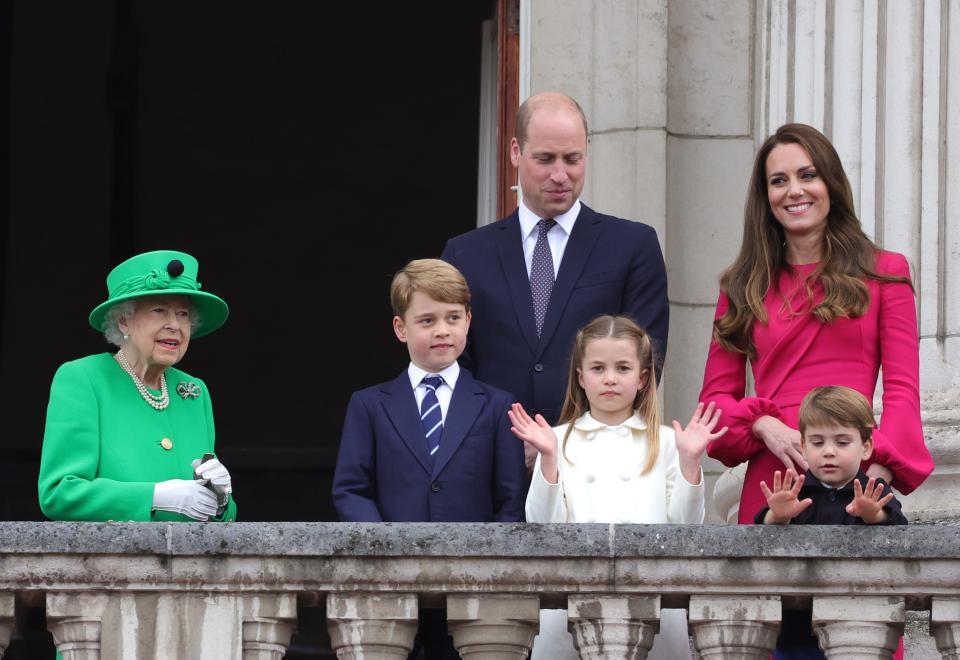
With that, the former Kate Middleton became the Princess of Wales, the first to hold that title since the death of William's mother, the late Princess Diana, in 1997. In fact, she is one of only three princesses to be known as Princess of Wales since 1901.
"Today, I am proud to create him Prince of Wales, Tywysog Cymru, the country whose title I have been so greatly privileged to bear during so much of my life and duty," the king said in the pre-recorded speech. "With Catherine beside him, our new Prince and Princess of Wales will, I know, continue to inspire and lead our national conversations, helping to bring the marginal to the center ground where vital help can be given."
Subscribe: All things royals sent to your inbox with our new Keep Calm and Carry on newsletter
The move, coming the day after the death of Queen Elizabeth II, is just one of multiple changes for the grandchildren and great-grandchildren of the late queen. As the king said, "This is also a time of change for my family."
Here are some of those changes for the young royals:
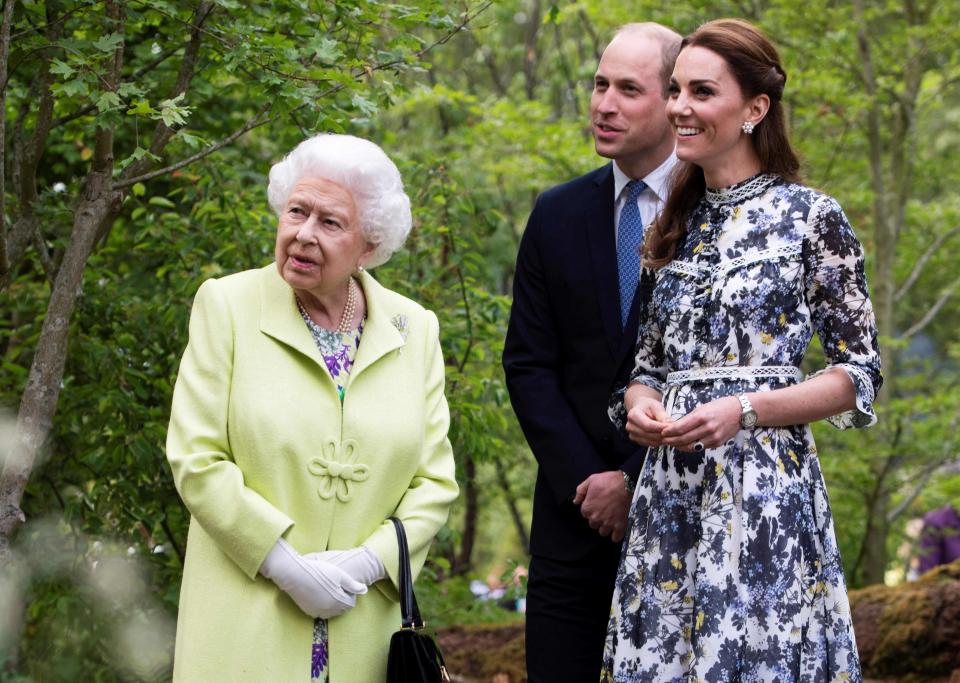
Did Prince William automatically become Prince of Wales?
No. The title of Prince of Wales, which dates to the start of the 14th century, is bestowed by the reigning monarch on the heir apparent, the first in line to the throne. So it was up to William's father.
King Charles, 73, was created Prince of Wales by his mother, the late Queen Elizabeth II, when he was 10 and his mother had been on the throne for six years.
But his formal "investiture" as Prince of Wales took place in an elaborate (and largely modern-invention ceremony) in July 1969 at CaernarfonCastle in Wales, when he was 20. It is not clear if a similar ceremony will be organized for William.
What other new titles do Prince William and Duchess Kate gain?
Previously known as the HRH the Duke and Duchess of Cambridge since their 2011 wedding, the couple, both 40, will now also have the titles Duke and Duchess of Cornwall and Cambridge, plus a host of other lesser titles to use when they are in Scotland or other parts of the kingdom.
Their three children also move up in the succession and get add-on titles: Prince George, 9, now moves up to second in line to the throne; Princess Charlotte, 7, now moves up to third; and Prince Louis, 4, now moves to fourth.
Now that their father is Prince of Wales, it is likely the children will be known by the last name of "Wales" in their school, as William and Harry were known during their school days.
Why Duke of Cornwall?
Duke of Cornwall is a lesser title of the Prince of Wales. It's why Charles' second wife Camilla was known, until now, as the Duchess of Cornwall after her marriage to Charles in 2005.
Legally, Camilla was the Princess of Wales as the wife of Charles. But it was decided she would be called Duchess of Cornwall to soothe the feelings of Brits still resentful of the former Camilla Parker Bowles. (Diana blamed her for breaking up her marriage to Charles.)
In his speech, the king confirmed that Camilla will now be known as Queen Consort, as requested by his mother in February,
"I count on the loving help of my darling wife, Camilla," Charles said. "In recognition of her own loyal public service since our marriage 17 years ago, she becomes my Queen Consort. I know she will bring to the demands of her new role the steadfast devotion to duty on which I have come to rely so much."
What is the Duchy of Cornwall?
Another important change for William and Kate will be inheriting the Duchy of Cornwall, the private estate (established by Edward III in 1337) that funds the public, charitable and private activities of the Prince of Wales and his family.
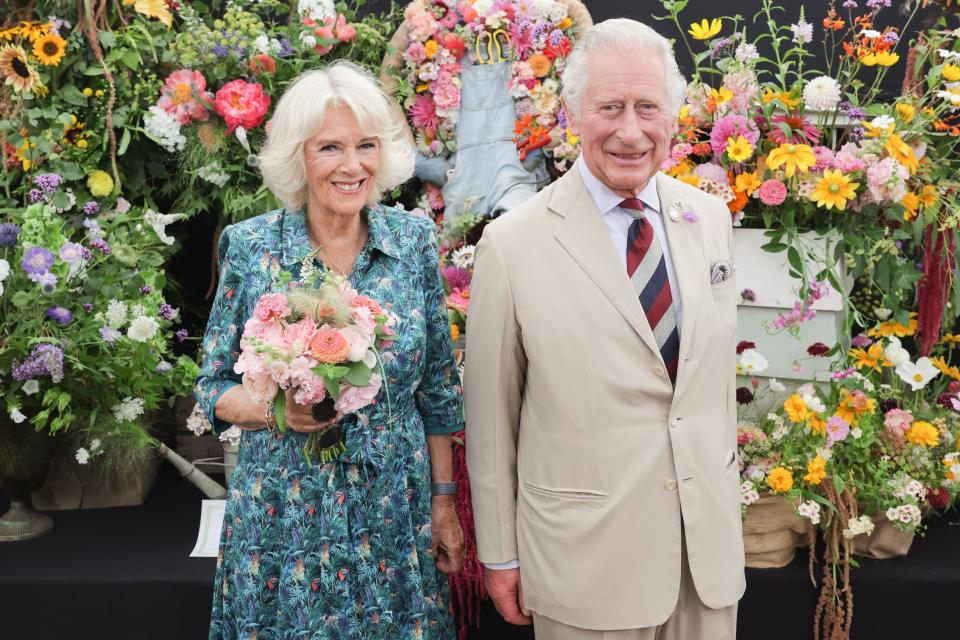
To put it bluntly, Will and Kate are going to be even richer than they already are.
Charles, as Prince of Wales, made the duchy one of the most lucrative in the kingdom with a variety of projects and initiatives: It's now worth about $1.3 billion. It is huge, including multiple properties, entire towns, farms, an historic mansion-turned-museum, and even a nursery for organic produce. In addition, the duchy promotes Charles' long-time interests in efforts to achieve sustainable markets and fight climate change.
Running the duchy is a herculean job in itself; Charles has been doing it for decades, along with everything else he did, and now it will be his son's turn.
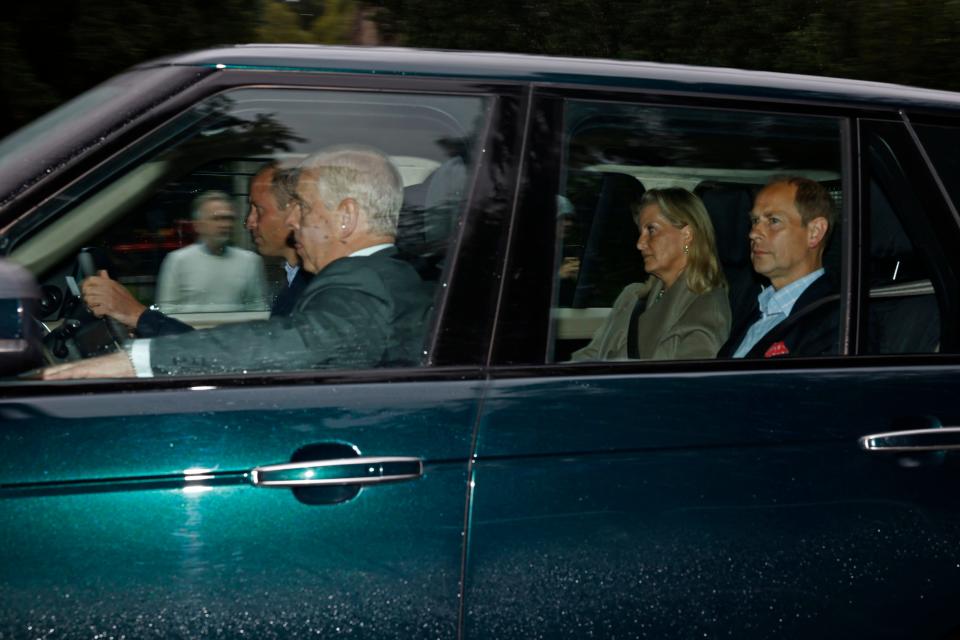
William has alreadyfor the job. In 2014, he went back to school as a post grad at Cambridge University to take a 10-week course in modern agricultural management.
Prince Charles was an especially busy Prince of Wales, with multiple charitable endeavors, such as the Prince's Trust, and wide-ranging interests in the arts, the environment and organic farming, and various business- and community-boosting projects.
What will happen to these causes under Prince William? He has established his own philanthropic profile focused on such issues as mental health awareness and fighting climate change. Will he take over his father's many efforts as well?
In his speech, the king noted with some regret how much his life and responsibilities will change as the new monarch, but he is confident his heir will carry on.
"It will no longer be possible for me to give so much of my time and energies to the charities and issues for which I care so deeply," he said. "But I know this important work will go on in the trusted hands of others."
What other changes have affected William and Kate's family?
Even though the 96-year-old queen's health had been fragile in recent months, and all the members of her family and the nation had been preparing for a change of reign, her death has nevertheless come as a shock for all.
And it comes at an especially volatile time for William, Kate and their children. The family just moved from their 20-room apartment in Kensington Palace in London to Adelaide Cottage, a four-bedroom historic house on the Windsor Castle estate that dates to 1831 but has been renovated multiple times since.
The move was made in part to be nearer to the late queen while she was living at the castle in the last two years of her life, but also to be nearer to the children's new school . And their first day at Lambrook School in Berkshire was the same day their great-grandmother died.
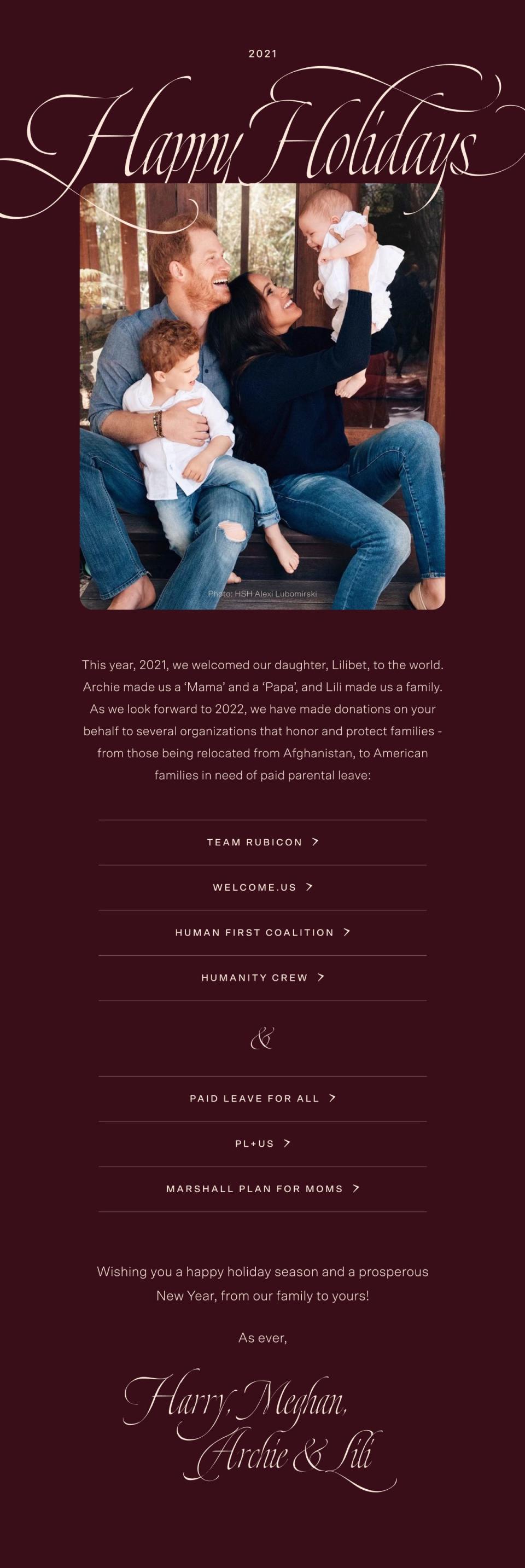
Will Prince Harry and Duchess Meghan's titles change?
No, but their children might gain titles for the first time.
Now that Charles is king, his two younger grandchildren, Archie, 3, who was born in London, and Lilibet, 1, who was born in California, would theoretically be able to claim the titles prince and princess.
But it won't be clear whether their parents will do so. And it's not clear whether Charles would be OK with this.
Under complicated rules dating from the early 20th century, generally only the descendants of a reigning monarch who are closest to the throne, children and grandchildren, are entitled to titles, so to speak, at birth. A monarch can also extend titles to great-grandchildren: Thus, William's three children all got prince or princess titles from their great-grandmother.
When Harry's children were born, they were too far back in line as the children of Harry, then-sixth in line and unlikely to inherit the throne.
But now the Sussex children's grandfather is king and Harry has moved up to fifth in line to the throne. His children are sixth and seventh respectively. Will Harry and his father, who have not been on warm terms recently, come to agreement on this title issue?
In his speech, the king said this: "I want also to express my love for Harry and Meghan as they continue to build their lives overseas."
Will the new reign spur Harry and Meghan to return to the UK?
Aside from the royal family's grief at the queen's passing, there is the another kind of sadness overhanging: The current estrangement between self-exiled Harry and Meghan and the family, especially his father and his brother, to whom he was once very close.
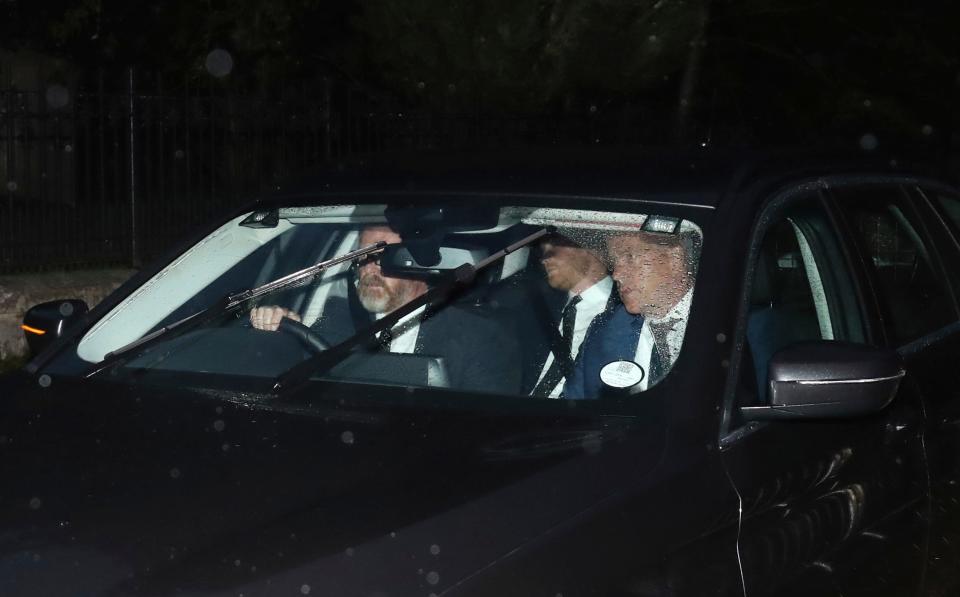
As it happened, Harry and Meghan were in the U.K. when the queen died, on a five-day visit to promote some of their charities. The WellChild Awards gala, which supports sick children and for which Harry has long been patron, went on without them in London Thursday night after the queen died.
Instead, Harry rushed, alone, to Balmoral, to join his father, brother, and his aunt and uncles, the queen's children, who were already at there. Kate also didn't attend.
Since their stunning departure, the Sussexes have been at odds with many members of the royal family (but not the late queen). The recriminations have only increased lately, as the couple have aired their complaints about royal life, including alleged racism in the family and indifference to Meghan's mental-health struggles.
Now Harry is poised to publish an "intimate" memoir of his life by the end of the year, raising the prospect of more "truth bombs," as the British tabloids call them, aimed at the royal family and at top palace officials.
But can the Sussexes and the royals reconcile in grief? Will the change in reign spur the Sussexes to return and resume their royal roles? Will they be willing to give up their freedom and lucrative Netflix and Spotify deals to resume secondary roles behind Will and Kate, the soon-to-be new Prince and Princess of Wales?
No one in the Sussex camp (or any camp) is saying.
This article originally appeared on USA TODAY: King Charles III names Will and Kate new Prince and Princess of Wales
